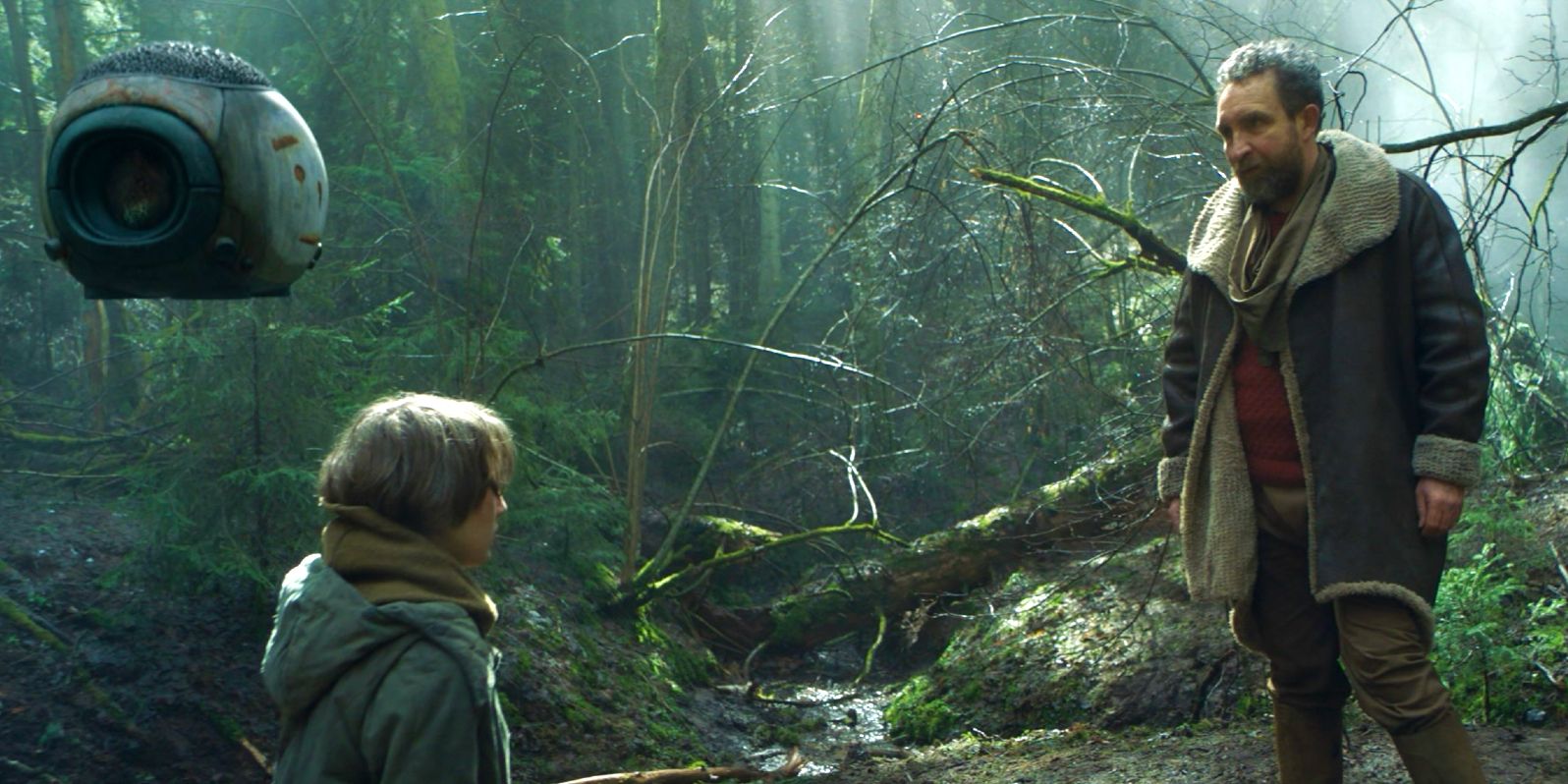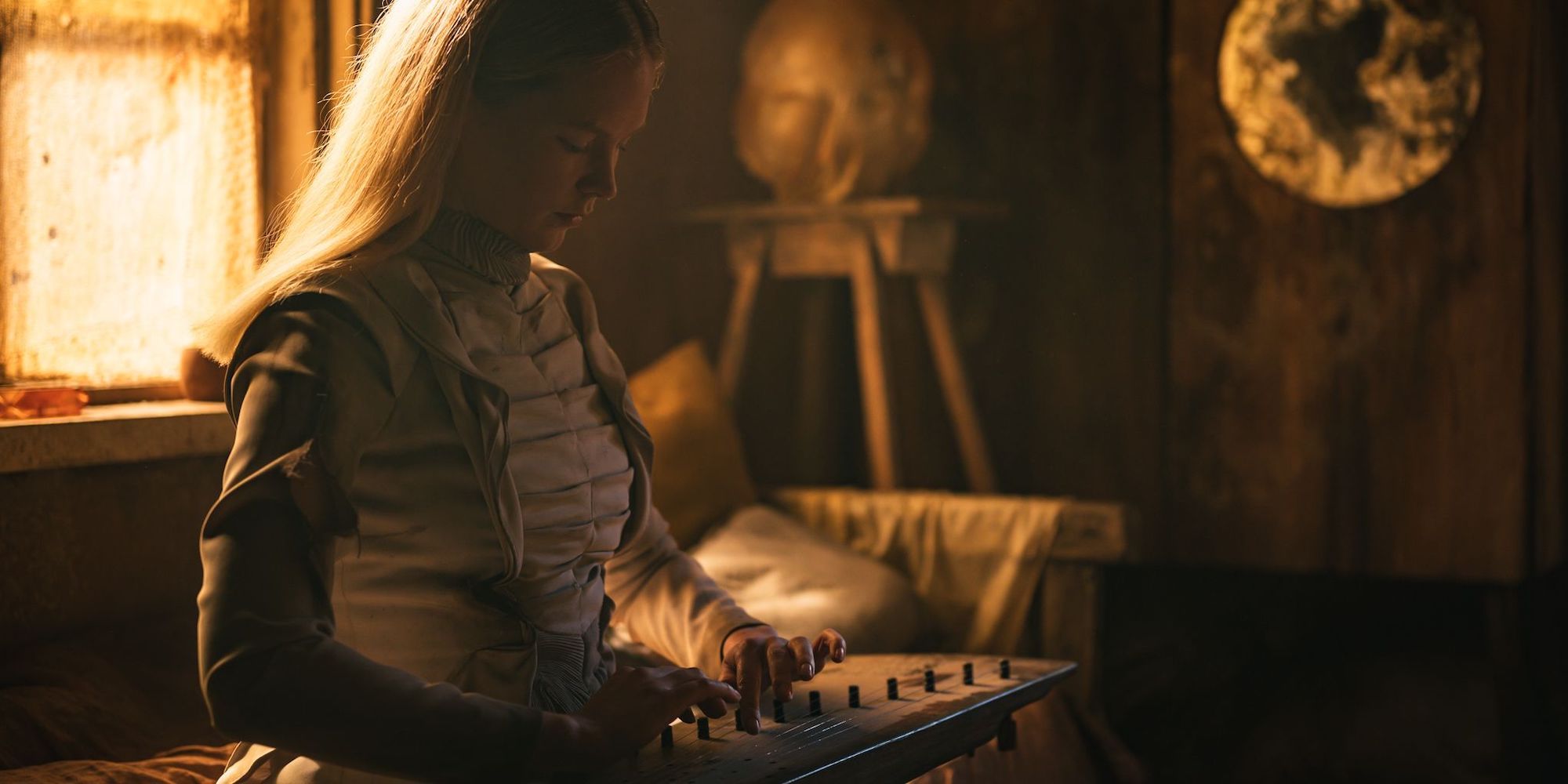One of the joys of science fiction is that it offers an opportunity for genuine creativity, to mold the world into shapes people would never see otherwise. Good sci-fi movies use this to think expansively, deeply, or, if audiences are lucky, both — Vesper falls into the first category. With a dystopia caused by synthetic biology run amok as its organizing principle, the film takes great pleasure in exploring its world, which is both visually and conceptually stimulating. The narrative frame is solid, and though not always the smoothest, there is an immersive quality to the filmmaking that makes how the story is told feel more important than the story itself. The resulting movie is one that genre enthusiasts would do well to seek out, because while mileage may vary when it comes to lingering impact, they certainly won't regret having taken the trip.
As explained in an ominous title card, Vesper takes place after humanity's attempt to avert ecological disaster with genetic technology backfires, wiping out not only most people, but the world's natural (i.e. edible) flora and fauna. Society is now firmly divided into the haves, who live in enclosed, technologically advanced Citadels, and the have-nots, who do their best to survive outside of them. That usually means buying their genetically engineered seeds, which the Citadels, in all their entrepreneurial wisdom, have coded to yield only a single harvest. It is in this world that the young Vesper (Raffiella Chapman) makes her living. Together with her paralyzed father, Darius (Richard Brake), whose consciousness can float around with her in a drone, she scavenges for food and makes deals with her dubious uncle Jonas (Eddie Marsan), who has found his economic niche by selling the Citadel blood from his many children. He is a cynical survivor, whereas Vesper is a dreamer. A gifted genetic engineer despite her circumstances, she dreams of an opportunity to show the closed-off oligarchs what she can do, and earn herself and her father a better life within their walls.
The story kicks off in earnest when Vesper witnesses a damaged Citadel vessel fall from the sky, potentially getting her chance to prove herself, but directors Kristina Buozyte and Bruno Samper are in no hurry to get there. Instead, they spend some time having the young protagonist interact with her environment, not only revealing to the audience who she is, but what this new world is like. Even though her existence can be The Road-like in its grimness, Vesper is surrounded by new, inventively designed plant life that can sometimes breathe, move, or bite. The technology she uses is organic in its design, a borderline-Cronenbergian mixture of metallic and fleshy textures, often filled with fluids of various viscosities. This show-don't-tell approach to worldbuilding is Vesper's most compelling feature. The movie's scope is manageably narrow, in that it focuses on such a small community, but one can feel the filmmakers taking the central idea, thinking outwards, and encouraging the viewer to do the same, until it feels like the movie covers more ground than it actually has to.
This is equally beneficial to Vesper's development, as the viewer comes to understand her through her ability to confidently navigate this dangerous landscape. A few early challenges allow her to demonstrate her intellect, while interactions with her uncle, who has designs on turning her into, as she says, one of his "breeders," show off her resolve. Her relationship with her father, the most emotionally engaging of the film, reveals not only her kind heart, but her optimism, which could be her salvation or her ruin. She is clearly different from the people who share her lot in life — she could make it out. But when the inciting incident finally occurs, putting her in contact with Citadel-dweller Camellia (Rosy McEwan), it doesn't seem like Vesper's all that much like them, either. It becomes clear that this dystopia has no place for someone like her, and the tension around whether she will successfully carve out a new one or be crushed for trying is what really powers the narrative.
These two elements — the design-driven worldbuilding and Vesper’s development — keep viewers engaged, but they have to overcome a few weaknesses to do so. The film is a bit too long, with the middle feeling like somewhat of a holding pattern, and even though the story needs it to, Vesper's dynamic with Camellia doesn't ever work as well as that with her father. Marsan's antagonist could've used a bit more characterization — one fewer scene being menacing to his niece, one more teasing out his relationship with his brother. And while Vesper makes for a compelling visual representation of how social inequality and climate disaster intertwine, certain thematic elements, particularly the Citadel's capacity to create artificial human servants (introduced by the so-called Jug at Jonas' home), want to be explored more than they are. These issues are there, but they don't overwhelm the viewing experience, and this indie sci-fi movie still comes very much recommended.
Vesper released in theaters and on VOD September 30. The film is 114 minutes long and is not yet rated.



